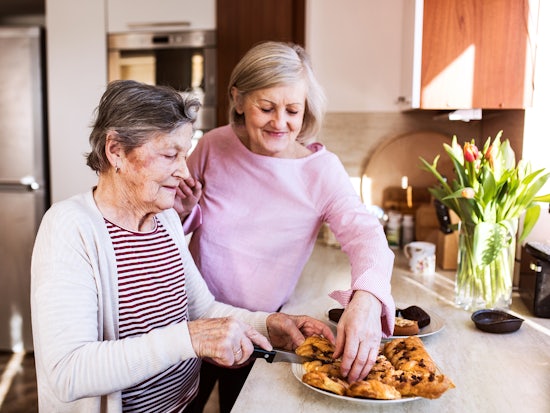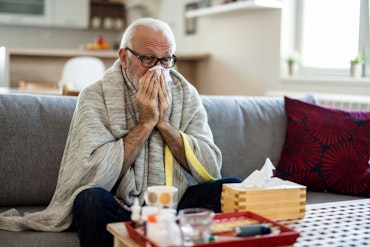Positive family relationships could be key to better care
Family relationships and the impact they can have later in life are
under the microscope as part of a growing research study by Deakin
University.

The care provided to older parents in the community by adult children is significant (Source Shutterstock)
The Families in Later Life Study (FILLS) is looking to expand its participant numbers by recruiting another 100 families of seniors and their sons and daughters as they continue to further “shine the spotlight” on the growing number of adult children caring for ageing parents, and the challenges and responsibilities faced by all parties in making in-home care sustainable for the family.
Tracking participants over the course of a year, Principal Investigator Associate Professor Gery Karantzas says it is an “essential study” which the findings of will provide crucial ways to support and strengthen family bonds, while assisting the future development of services for family caregivers and care recipients to cope with this already difficult stage of life.
“The care provided to older parents in the community by adult children is significant, currently saving the Federal Government over $4.4 billion annually,” he explains.
“But caring for ageing parents comes at a cost for the families with many adult children reporting significant carer stress and burnout due to the financial, social and emotional strain that caregiving can place on carers.
“Importantly, the quality of people’s relationships during the later years of life can exacerbate the strains.
“There is even preliminary evidence to suggest that relationship strains can exacerbate rates of cognitive decline in both carers and care-recipients, with contrast in family relationships reflecting love and support that appeared to decrease these physical and mental health issues.
“It’s as if good family relationships inoculate ageing parents and their sons and daughters from all kinds of physical and emotional problems.
“How best to support these positive outcomes is what we hope to better understand through this study.”
The quality of the relationship between the parent and child, which can have a big impact on health outcomes for both parties, will be a focus in the study which is unique in its approach.
“This study is unique in that it tracks the relationship and wellbeing of both the older parents and his or her sons and daughters, thereby investigating both perspectives,” Mr Karantzas explains.
“Most aged care studies either track the carer or the care recipient, but not both, and yet it’s the interaction between the adult child and older parent that is critical in understanding how care is provided, how it’s received, and how parents and children influence one another’s wellbeing.
“Our preliminary findings are in line with expectations, carers experiencing relationship strains demonstrate poorer care of older parents, and this is especially the case when the carer is more distressed.
“On the flip side, strong family bonds act as the ‘glue’ that keeps carers and older parents working well together in dealing with the challenges of in-home care, however we need more participants to reach a conclusive finding.”
Mr Karantzas says the study already has 30 participating families but is looking for 100 more families from the Melbourne, Geelong and Bendigo regions to take part.
Participating families must include an older parent (above 65 years) with no cognitive impairment and one son or daughter – with all parties able to speak and read English.
Over the year-long study, parents and their adult children will be asked to complete seven surveys, as well as be available for four visits made by the researchers to the participants’ homes to take part in video discussions, with the sons/daughters also taking part in an online app game.
Mr Karantzas encourages families to consider taking part, saying families will be able to gain insight about their relationships, give back to the community and be part of research that will inform policy.
“The results of FILLS will inform policy that applies to families in all different kinds of situations, from giving a low level of support to full-on caregiving,” he explains.
“Retirement villages, assisted living facilities and aged care organisations will be informed on ways to foster the well-being of their residents and client.
“We urge people to get involved with this essential study that tackles a significant community issue: how do families deal with the care of older parents; and we need the voice of ageing families.”
The project is expected to run until next year, with the findings to be released soon after data analysis of the full sample is complete.
More information about FILLS can be found online www.fills.org.au or by calling (03) 9246 8544.











![The new Aged Care Act exposure draft is slated for release in December of 2023, but advocates hope to see it rolled out on January 1, 2024. [Source: Shutterstock]](https://agedcareguide-assets.imgix.net/news/articles/wp/agedcareact__0811.jpg?fm=pjpg&w=520&format=auto&q=65)












Comments